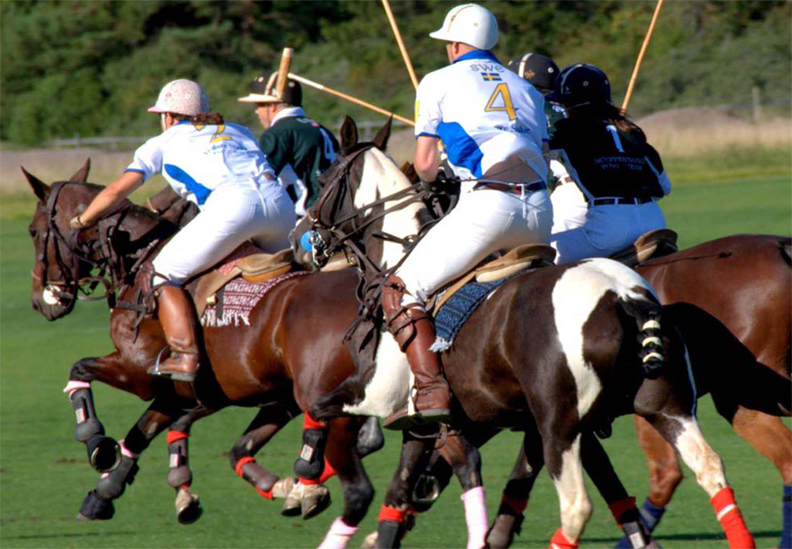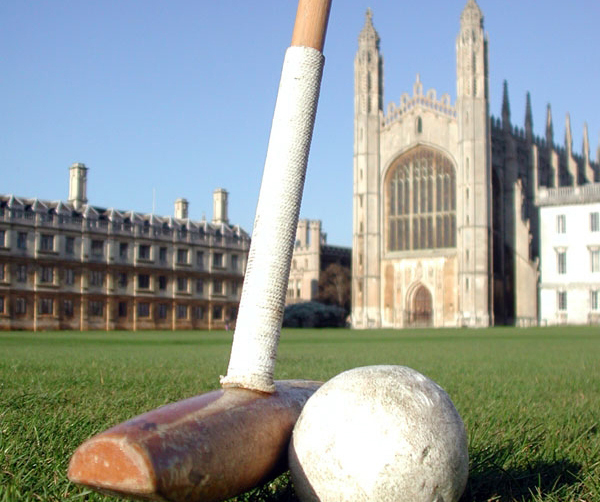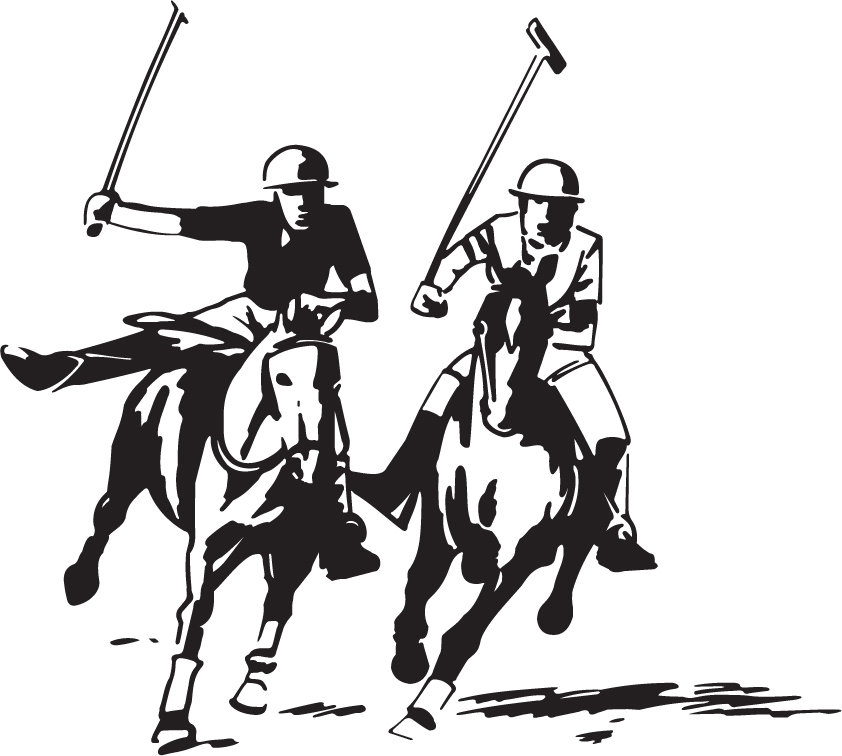U.S.-Sweden Polo Invitational Match in Georgia
The 2010 Invitational will mark the first time that a Swedish polo team has played in the United States. It is the second annual match of these clubs.
-
 The 2010 Invitational will mark the first time a Swedish polo team has played in the United States.
The 2010 Invitational will mark the first time a Swedish polo team has played in the United States. -
-
The 2010 U.S.-Sweden Polo Invitational Match is held Friday, Oct. 15 through Sunday, Oct. 17 with the preliminary round on Oct. 15 and match finale on Oct. 17. Gates open at 1 p.m. on the final day, and the match starts at 2 p.m. at the Chukkar Farm Polo Club and Event Facility in Alpharetta, GA, USA. The 2010 Invitational is the second annual match of the Almare Stäket Polo Country Club as Team Sweden and the Scuppernong Polo Club as Team USA.
The Almare Stäket Polo Country Club hosted the first U.S.-Sweden Polo Invitational last year in Stockholm. Until then, a U.S. team had not ever played in any polo match in Sweden. The event had tremendous support by the governments of the United States and Sweden and attracted significant media attention. -
 Many associate polo with the British Empire but the game's origins are far older. The word "polo" is derived from pulu, the Tibetan word for ball. The sport was introduced to England in 1869 and has been adopted by such prestigious schools as Cambridge (photo) and Oxford.
Many associate polo with the British Empire but the game's origins are far older. The word "polo" is derived from pulu, the Tibetan word for ball. The sport was introduced to England in 1869 and has been adopted by such prestigious schools as Cambridge (photo) and Oxford. -
-
Jill Olander, Honorary Consul of Sweden in Atlanta, has observed, "The U.S.-Sweden Polo Invitational held in Atlanta this year is the first time that a Swedish polo team has played in the United States. This historic event represents the deep and lasting ties and furthers the bridge between our nations."
-
 Polo is arguably the oldest recorded team sport in known history, with the first matches being played in Persia more than 2500 years ago
Polo is arguably the oldest recorded team sport in known history, with the first matches being played in Persia more than 2500 years ago -
The 2010 Invitational will consist of two days of play with six chukkers (or chukka) on each day. The Almare Stäket Polo Country Club is represented by Viktor Folcker, David Hullberg, Niclas Johansson, Anna Olsson, Johan Seth and Katarina Wolk.
-
The Scuppernong Polo Club has its home at Chukkar Farm near Milton, GA. The Scuppernong Polo Club and Chukkar Farm were established in 1989 by Jack Cashin, and both are still owned and operated by Cashin and his family. Chukkar Farm has over 170 acres of pastures and trials with a clubhouse, an outdoor polo field and an arena. The Scuppernong Polo Club has approximately 50 members with 30 players, and hosts a teaching facility to train new players.
-
The Almare Stäket Polo Country Club is part of the Almare Stäket Manor and Equestrian Center. Johan Seth, the owner of Almare Stäket, founded the Almare Stäket Polo Country Club in 1999 and now manages it with his daughter, Caroline Sjöström. The Almare Stäket Polo Country Club is the sole polo club in Sweden with the capacity to host polo matches. It has the only regulation sized polo field, indoor and outdoor arenas, and facilities for one hundred horses. It maintains a teaching facility to train new players and is the home to the Scandinavian Polo Open.
-
For more information on this SACC-Georgia sponsored event, see www.sacc-georgia.org / for event, see www.sacc-georgia.org/pdf/Invitation_sample.pdf or call (770) 670-2480
Admission: free; parking: $15. Refreshments available for purchase.
Chukkar Farm, 1140 Liberty Grove Rd., Alpharetta, GA 30004
www.chukkarfarm.com -
Polo
Polo is a ball sport, played on horses, where one team attempts to score goals by hitting a hard, hockey-sized ball through their opposition's goal with a mallet attached to the end of a 4¼-foot stick.
The outdoor polo field is 300 yards long and 160 yards wide, the largest field in organized sport. The goal posts at each end are 24 feet apart and a minimum of 10 feet high. Penalty lines are marked at 30 yards from the goal, 40 yards, 60 yards and midfield. -
Each polo match is divided in to "chukkers" (also known as chukka). A chukker is 7½ minutes of active play time and is supposed to represent the amount of time a horse can reasonably exert itself before needing a rest. Polo Matches are divided into four, five or six chukkers depending whether the level is low, medium or high goal polo.
In outdoor polo there are four players on a team. Numbers 1 and 2 are traditionally attacking whilst 3 is the midfield playmaker and 4 is defense. However, as the sport is so fluid, there are no definite positions in polo.
Two mounted umpires referee the game. They must agree on each call made; if they disagree they refer to the "3rd man" who would be on the edge of the pitch in line with the center mark. His decision will settle the argument.
Handicaps in polo range from -2 to 10 "goals" with 10 being the best. A player who is playing above his handicap level (i.e. 3 playing as a 5) is known as a bandit and is a very valuable but short-lived commodity. Handicaps are assessed and independently mediated several times during the season. -
The rules of polo are centered almost completely around safety. The sport is inherently dangerous, which may be part of the allure; however, the rules go a long way to negate risk.
-
Many associate polo with the British Empire but the game's origins are far older. The word "polo" is derived from pulu, the Tibetan word for ball. It is arguably the oldest recorded team sport in known history, with the first matches being played in Persia more than 2500 years ago. British officers themselves re-invented the game in 1862 after seeing a horsemanship exhibition in Manipur, India. The sport was introduced to England in 1869, and seven years later sportsman James Gordon Bennett imported it to the United States.
-
Sources: Federation of International Polo, Cambridge Polo, Barbados Polo Club, wikipedia.org
-
-
